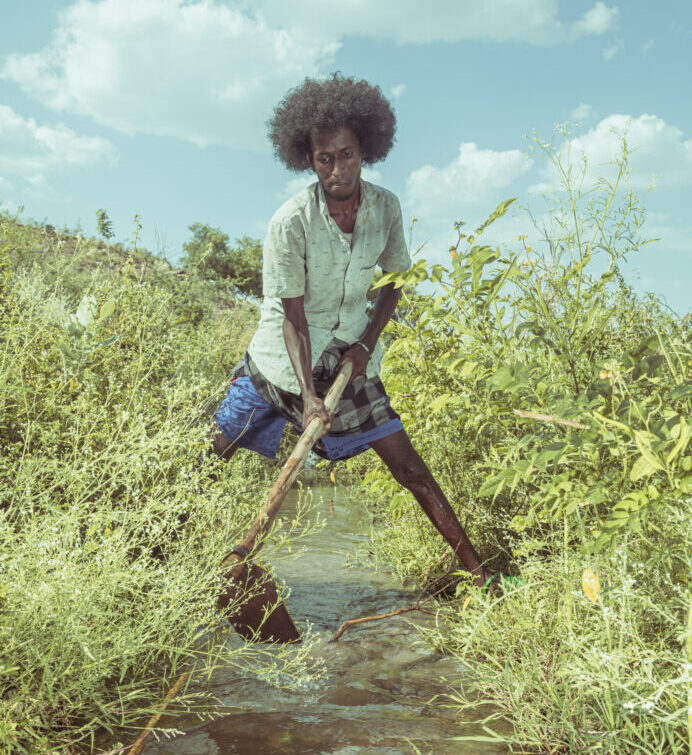
The Borena Zone in Ethiopia’s Oromia region frequently faces a range of crises, including drought, resource scarcity, and intercommunal
conflicts, which significantly impact pastoral communities and their livelihoods. Adopting a nexus approach, Amref Health
Africa’s RELIEF – Resilience, Emergency, Lifesaving project integrates humanitarian aid, development, and peace-building efforts to
enhance resilience, address immediate humanitarian needs, and foster sustainable recovery of communities in Borena. By
focusing on long-term solutions, the project improves livelihoods, strengthens stability, and ensures sustainable improvements in living
conditions.
Implemented in Ethiopia’s Oromia Region, Borena Area (Guchi and Miyo Woredas), the project follows a rights-based and
community-centered approach to reduce vulnerability and promote long-term self-reliance for affected populations. The project is implemented through a strong partnership between international and local organizations. While CESVI ETS Foundation
(CESVI) leads the project implementation, Amref Health Africa ETS (Amref Italia) and the International Committee for the Development
of Peoples (CISP), both provide technical expertise and resources to support the project activities. Amref Health Africa in Ethiopia
(Amref Ethiopia) executes on-the-ground interventions, ensuring community engagement, and coordinating with local
stakeholders.
Strategic Pillars
- Water, Hygiene and Sanitation: Established and operational functional water systems, built sanitation facilities, and awareness creation on good hygiene and health practices.
- Agriculture and Food Security: The most vulnerable households benefit from multi-use financial assistance (MPCA) to meet their basic needs, ensure access to inputs and technical assistance for agricultural production activities.
- Health and Nutrition: Build capacity of healthcare workers, support health centers functioning and provision of essential
maternal-child health and nutritional services and awareness and behavioral change campaigns on health, nutritional practices and protective risks. - Disaster Risk Reduction: Strengthened participatory governance through community meetings and SCLR approach, support districts to developed and functioning DRR plan.
Primary Outcomes
- Access to water infrastructure and services for human consumption of drinking water and hygiene improved.
- Ability of most vulnerable population, particularly women heads of households, mothers, and pregnant women to produce healthy and nutritious food improved.
- Access to maternal and child health and nutrition services for the most vulnerable population, in particular mothers and pregnant women and children improved.
- Capacity of communities to prevent, mitigate and take proactive measures against climate shocks
Beneficiary population improved.
